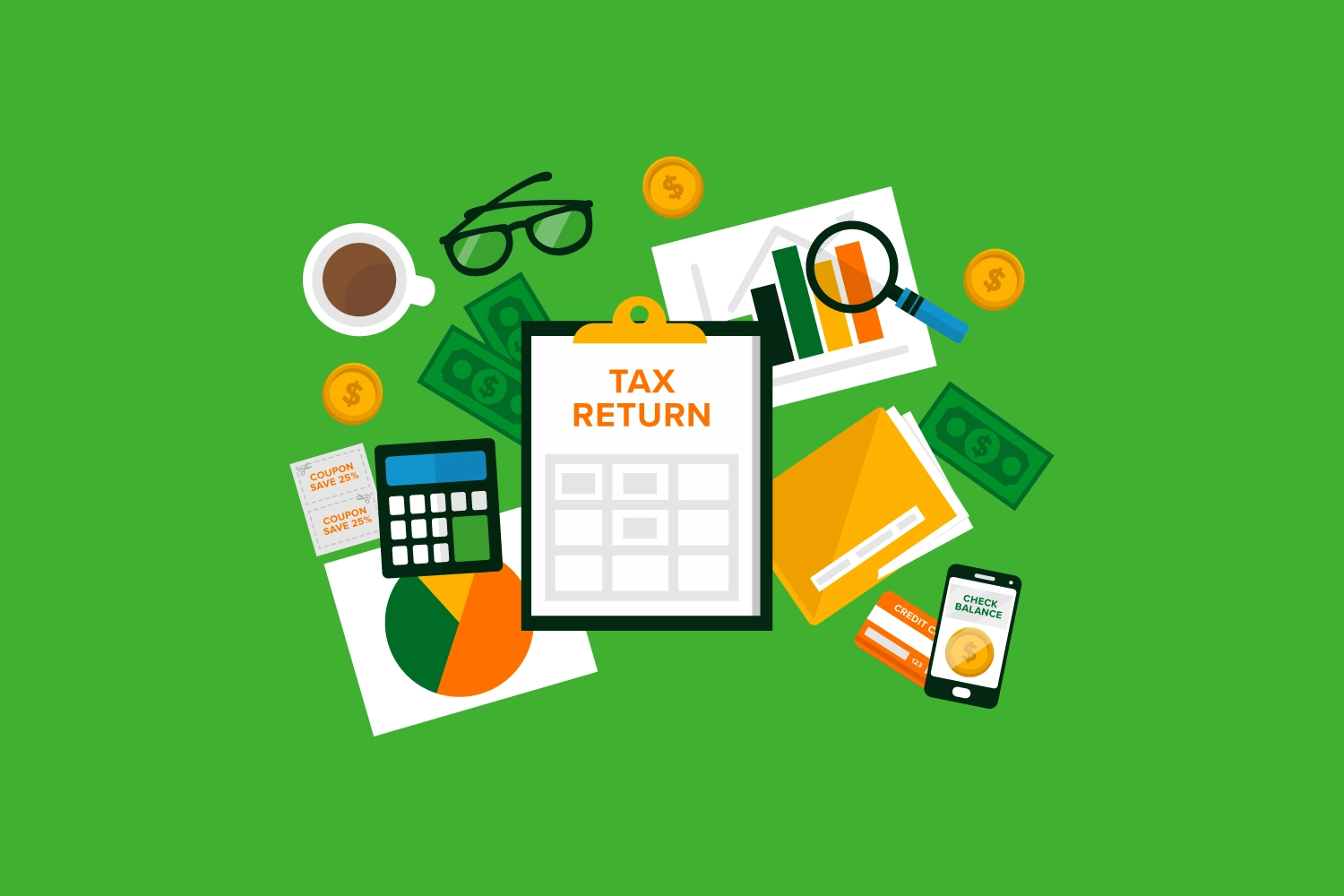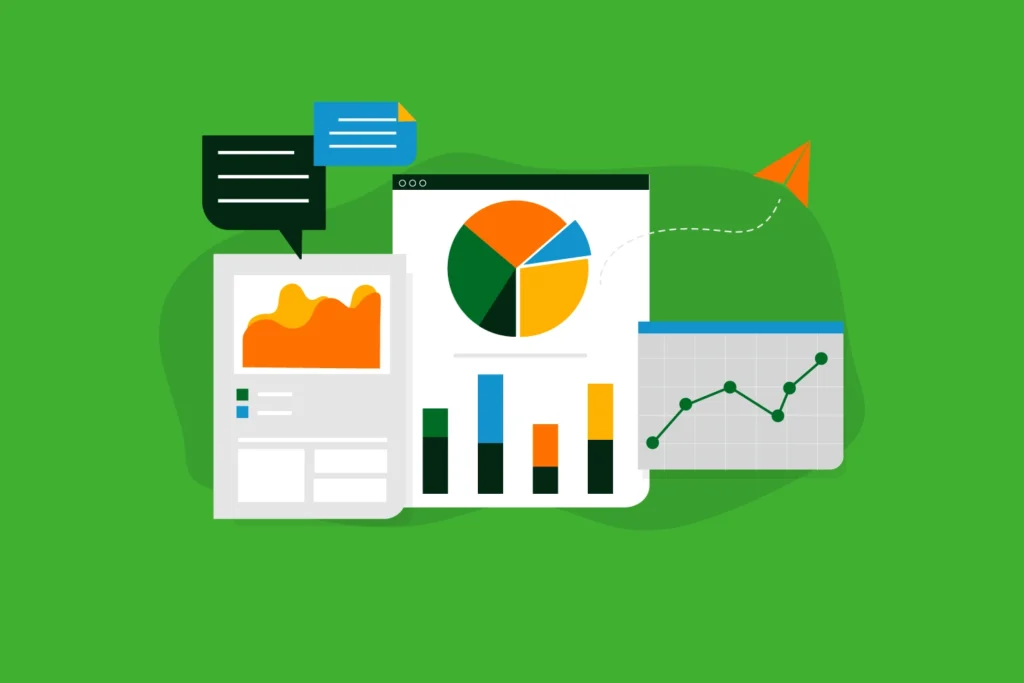Disclaimer: The articles published here on the City of Eau Claire Economic Development Division website are meant to be a helpful starting point as you explore doing business in our community. They’re not the final word on requirements or what’s best for your unique situation. We always recommend checking in with legal, financial, or other professionals for advice tailored to your business.
Starting a business in Eau Claire comes with plenty of big moments—new ideas taking shape, first customers walking through the door, and that feeling that you’re building something real.
But tucked between all the big milestones is an equally important part of the journey: filing taxes. They might not sparkle like a shiny new sign, but understanding how business taxes work can save you stress, money, and more than a few late-night Google searches, helping you stay compliant and confident.
Here’s a short guide to making sense of business taxes when opening in Eau Claire, so you can spend less time deciphering forms and more time growing what you’ve built.
Make Sure You’re Registered with the Right Agencies
You should’ve already done this when setting up your business, but to review, new Eau Claire business owners are required to register with the certain agencies to avoid penalties, stay compliant, and be ready to collect taxes or hire employees smoothly.
Here’s where to start:
Internal Revenue Service (IRS)
Even if you don’t plan to hire employees immediately, getting an Employer Identification Number (EIN) is a smart move. Think of it as your business’s Social Security number for federal taxes. Applying is free and fast through the IRS website.
You’ll need an EIN if you:
- Hire employees
- Operate as a corporation or partnership
- File specific tax returns like excise taxes
Wisconsin Department of Revenue (DOR)
If you sell products or taxable services, register with the DOR to collect and remit sales tax. This also covers income tax withholding if you have employees. You’ll receive a seller’s permit or tax account number for filing returns. Registering is easy and online, and it’s best to do it early so you can collect sales tax from day one.
City of Eau Claire
Don’t forget local permits and licenses! Depending on your business type and location, you may need a business license before opening. Restaurants, retail shops, and many service providers usually do, so start by checking this guide to find out what applies to you and where to go. Taking care of this early helps avoid fines or operational delays. Then, once it’s done, you can focus on growing your business and serving customers.
Know the Different Types of Taxes You Might Encounter
Taxes for your business come from several levels: federal, state, and local. Knowing the basics of each type will help you stay ahead and avoid surprises.
Income Tax
First up is income tax. Both the IRS (that’s the federal government) and Wisconsin will want their share of your business’s profits, and knowing your structure early helps you understand which tax forms to file and when.
How you pay depends largely on your business structure:
- Sole proprietorships and single-member LLCs report business income on your personal tax return. That means profits “pass through” to you, and you pay taxes based on your personal bracket.
- Partnerships and multi-member LLCs work similarly, passing income through to owners who report it individually.
Corporations (C-Corps) are taxed separately from their owners, paying corporate income tax. Meanwhile, an S-Corp lets income pass through to owners like LLCs.
Sales Tax
If you sell physical products, like handmade crafts, clothing, or food, or certain taxable services, you’ll need to collect sales tax from customers. Wisconsin’s state sales tax is 5%, and Eau Claire adds a local rate to bring the total to 5.5%. So, for a $20 sale, you’d collect $1.10 in tax.
As the business owner, you’re responsible for collecting this tax at the point of sale and regularly sending it to the Wisconsin Department of Revenue (DOR), usually monthly or quarterly. Getting this right from the start is crucial to avoid fines.
Employment Taxes
Hiring employees means new tax duties too. When you pay your team, you need to withhold federal and state income taxes from paychecks and also pay your share of payroll taxes, including:
- Social Security Tax
- Medicare Tax
- Federal & State Unemployment Insurance
Plus, you’ll file payroll tax returns and provide W-2 forms annually. Many payroll services and accountants can simplify this for you.
Property Tax
If your business owns property (think storefronts, offices, warehouses, or equipment), property taxes come into play. Eau Claire County and City assess these taxes, which vary by property type and location. They’re used to fund local services like schools and roads, so it’s smart to budget for them.
Understanding these basic tax types helps you prepare and keeps your business compliant with all levels of government.
Don’t Forget Estimated Taxes
One surprise for many new business owners is you might have to pay taxes before tax season arrives. That’s where estimated taxes come in. If you’re self-employed or run a business without tax withholding, you generally pay estimated taxes quarterly. These cover income tax and self-employment tax (which includes Social Security and Medicare).
Why pay estimated taxes?
Instead of a big lump sum in April, estimated taxes break payments into smaller chunks. This helps you avoid a large tax bill that strains your cash flow, as well as penalties and interest for underpaying the IRS or Wisconsin DOR.
When are payments due?
Estimated taxes are due four times a year:
- April 15 (for income made January-March)
- June 15 (for income made April-May)
- September 15 (for income made June-August)
- January 15 (for income made September-December)
How to estimate what you owe:
- Use IRS Form 1040-ES worksheets
- Try online calculators from the IRS or Wisconsin DOR
- Ask your accountant or tax preparer for personalized help
If your income changes, you can adjust payments accordingly—no need to stick with a fixed amount. Just be sure to mark the due dates so you stay on top of submitting estimated tax payments on time; doing so keeps your business finances healthy and helps you avoids surprises.
Explore Tax Credits & Incentives
Aside from taxes you might owe, Eau Claire and Wisconsin offer several tax credits and incentives that could help your business save money. These programs encourage local growth, job creation, and community investment, and taking time to explore them could lead to meaningful savings.
Common examples:
- Hiring Credits: For employing veterans, individuals from certain groups (such as people with disabilities), or residents in economically challenged areas. These credits reward businesses that create jobs and support workforce development.
- Energy Efficiency Incentives: If you invest in energy-saving equipment, lighting, or renewable energy, Wisconsin offers credits to help offset those costs. These also lower utility bills—good for your wallet and the planet.
- Enterprise Zones & Development Districts: If your business is located in certain designated areas within Eau Claire, you may qualify for financial perks that encourage investment and revitalization.
You can typically find more information about these programs just by doing some homework on your own. Or you can talk to local business advisors; for example, the Small Business Development Center (SBDC) at UW-Eau Claire can answer many questions and will direct you to professionals who can help identify incentives for your business if they can’t.
Keep Good Records from Day One
Here’s advice every successful business owner will give you: Keep good records from the very start. It might seem tedious, but staying organized with your finances saves you stress and money come tax time.
Good records don’t just make tax filing easier either; they help you track business performance so you can adjust what’s needed, spot mistakes early before they grow into bigger problems, claim every tax deduction possible to reduce your bill, and have documentation ready if you’re ever audited.
What To Track
These are the records you should be keeping:
- Income: Every sale, invoice, or payment you receive
- Expenses: Receipts and invoices for everything from office supplies to utilities
- Payroll Records: Employee wages, benefits, and withheld taxes
- Tax Filings & Payments: Copies of all forms filed and payments made
- Bank & Credit Card Statements: To verify income and expenses
How to Stay Organized
You don’t need expensive software to start. Pick a system that fits your style:
- Spreadsheets offered by Microsoft or Google—great for simple setups
- Accounting software, like QuickBooks, Xero, Wave, and others, to automate tracking
- Paper files, such as clearly labeled folders for receipts and invoices
- Mobile apps so you can snap scans of receipts and organize on the go
The key is being consistent. Set a regular time, whether it’s weekly or monthly, to update your records so you’re not scrambling later. Good record-keeping pays off big time when tax season arrives.
When in Doubt, Ask for Help
Taxes can get complicated, especially when you’re just starting out. Asking for help at th beginning can be a smart move in the long run.
Why get help? Tax laws change often, and juggling federal, state, and local rules can be tricky. A small mistake could cost you time, money, or penalties. Experts familiar with Eau Claire and Wisconsin taxes can give you peace of mind and save costly headaches.
Who can help? Look for local accountants and tax professionals around the Eau Claire area. They can help you set up bookkeeping, file taxes, and plan strategies so you keep more of what you earn.
No matter what, don’t wait until tax season. Getting good advice helps you build strong systems and avoid last-minute stress. Remember, every successful business owner started where you are now, and most got there with a little help from trusted experts. So, don’t hesitate to ask questions and tap into local resources.
Conclusion
Starting a business comes with many moving parts, and taxes are just one piece. But understanding tax basics now helps you stay compliant and might even lead to you finding some financial advantages along the way. If you’re ready to dive deeper or have specific questions, reach out to local experts. Eau Claire is cheering you on!
Article Cover Illustration by Freepik





